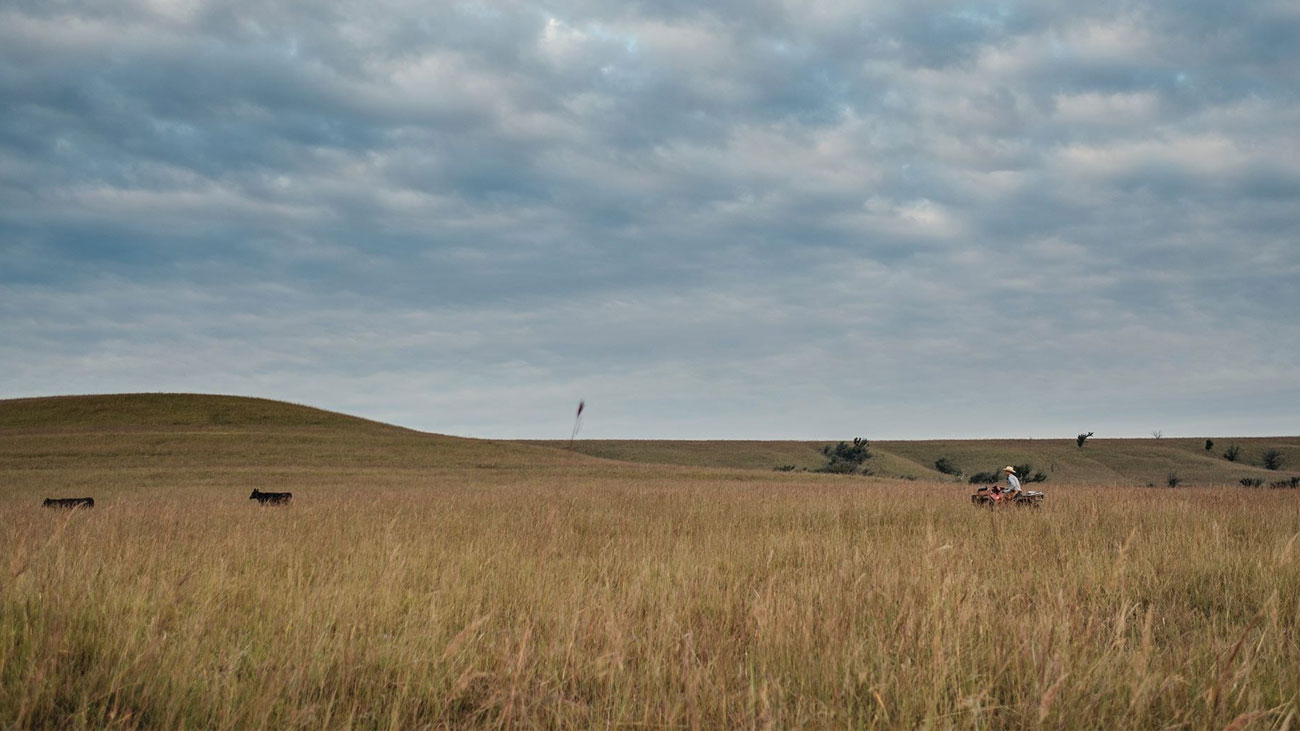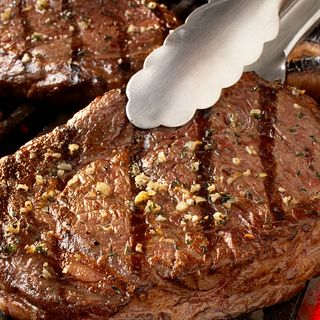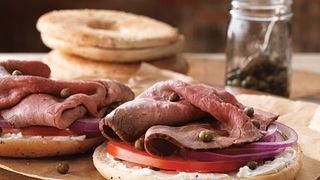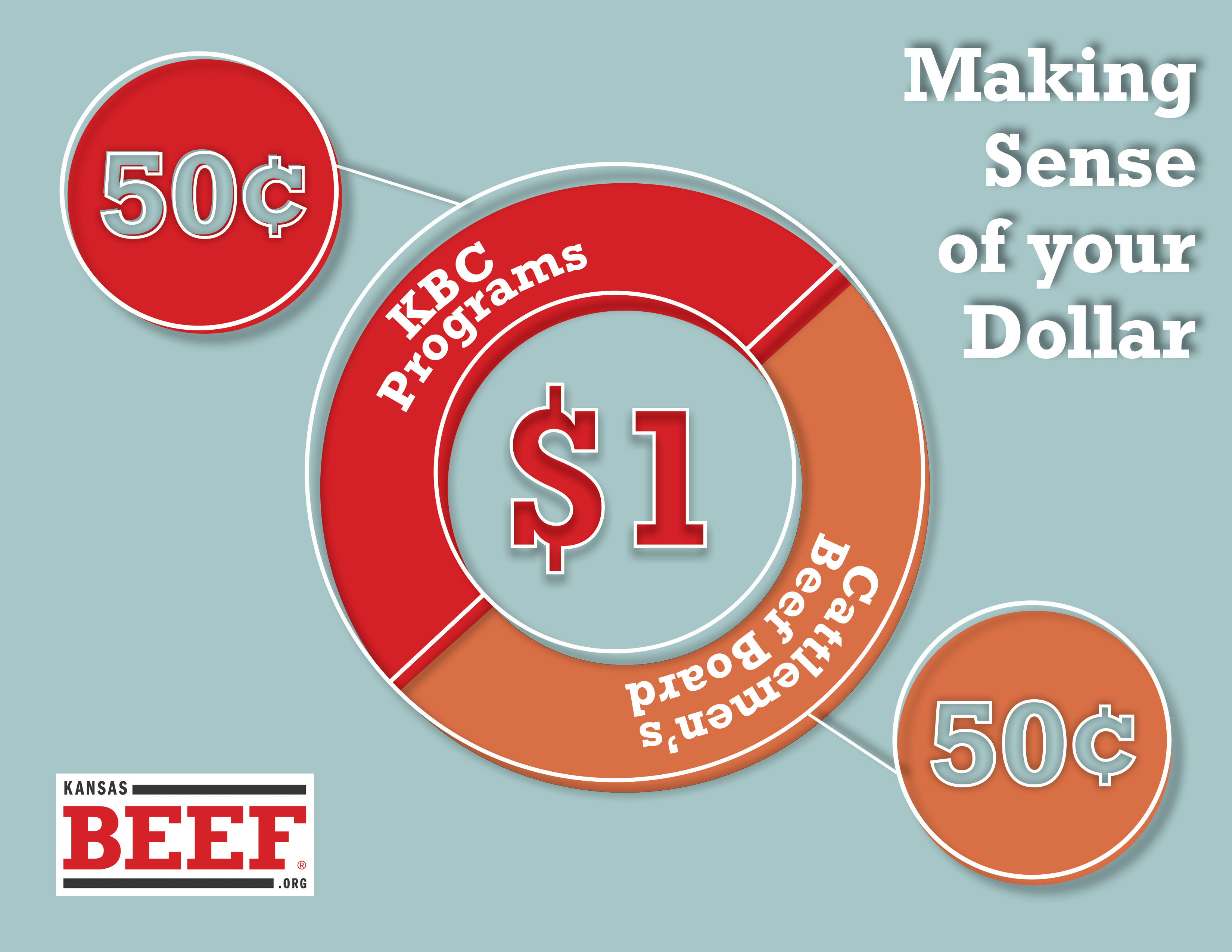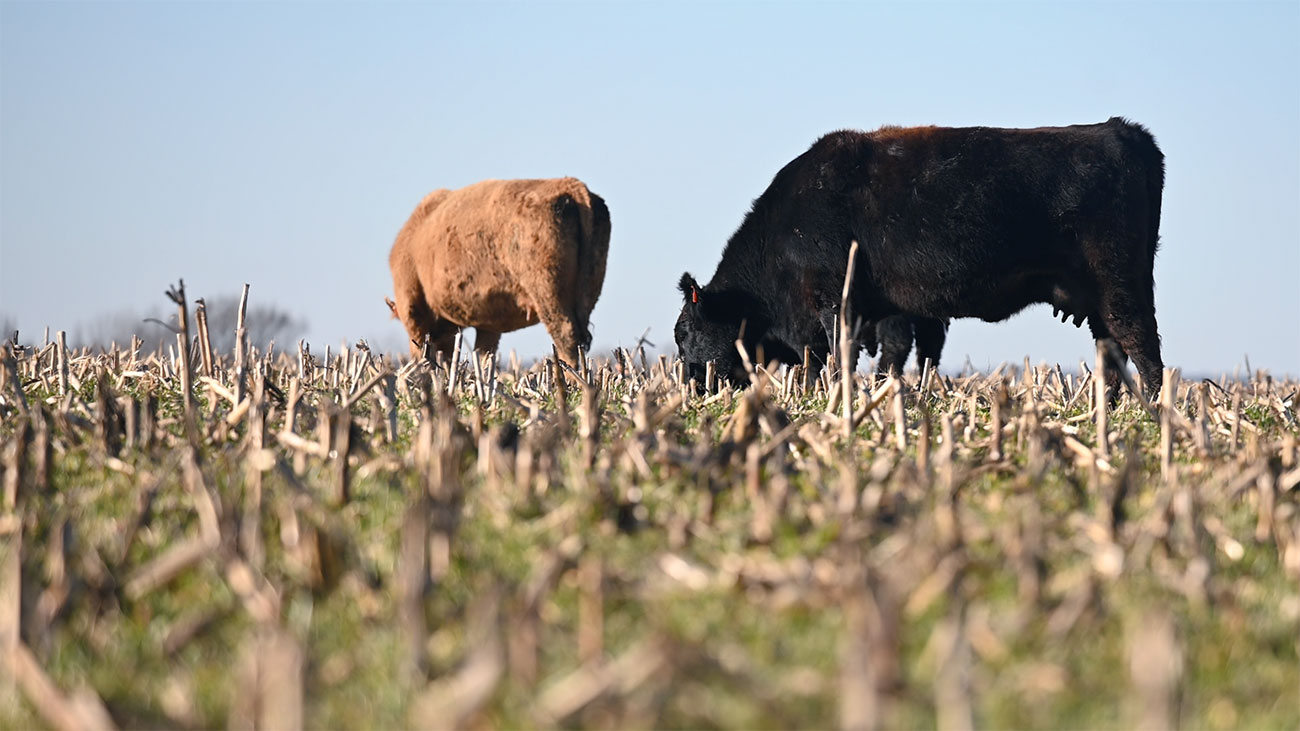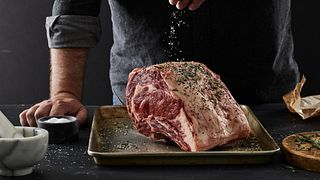2025 Spring BQA Trainings
March 11 - Prairieland Partners, McPherson
March 27 - Flint Hills Stockyards, St Mary's
April 22 - K-State Southwest Research-Extension Center, Garden City
To secure a reservation, call 785-273-5225 and provide your name, phone number, email and guest count. Or, you can RSVP via [email protected]
Your dollar at work
producer education
Additional resources
GET BEEF PROMOTIONAL MATERIALS FOR YOUR NEXT EVENT
Are you holding an event with your local cattlemans group, at a county fair or a health and wellness event? The Kansas Beef Council can provide you with beef sticks, recipe books and brochures, hats and other items both consumers and fellow producers will be sure to enjoy.
Email [email protected]
